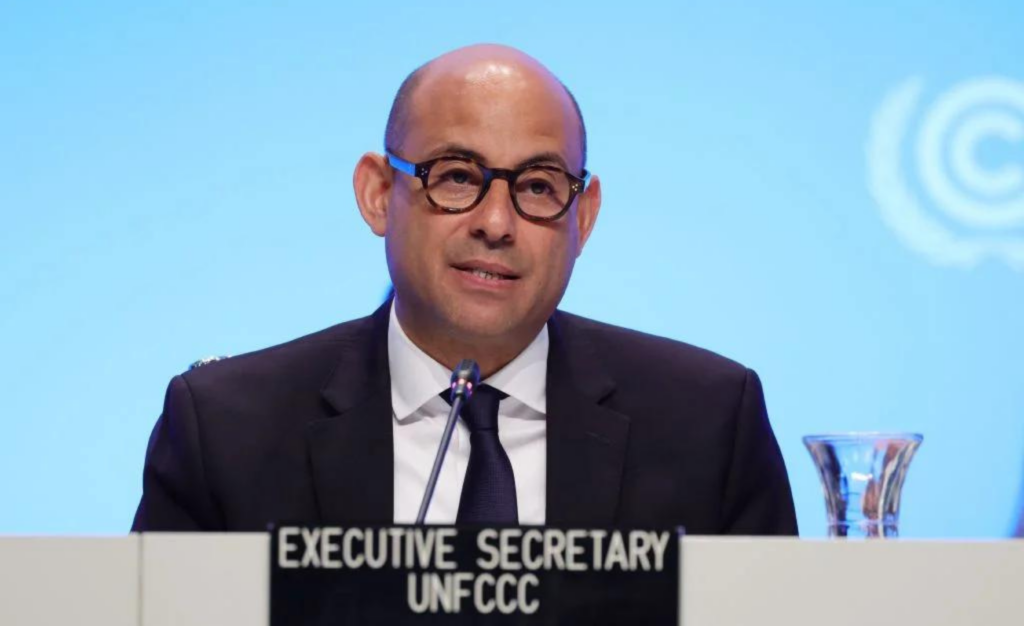Corporate Climate Stocktake 2023: Private Sector Progress, Barriers, and Opportunities for Net Zero

|
Listen to this story:
|
The Corporate Climate Stocktake 2023, led by the We Mean Business Coalition and supported by the UN Climate Champions team and Bain & Company, has unveiled a comprehensive assessment of the current state of corporate climate action and its implications for future emissions reduction efforts.
In the wake of the landmark Paris Agreement negotiations at COP21 in 2015, world leaders committed to reviewing their collective progress towards the agreement’s objectives in 2023. As the international community prepares to gather in Dubai for COP28, the first UNFCCC Global Stocktake serves as a crucial moment for course correction and an acceleration of climate action, both at the national and corporate levels.
The Corporate Climate Stocktake (CCST) represents a pioneering initiative that explores private sector advancements, challenges, and possibilities for achieving net-zero emissions. This comprehensive analysis scrutinizes eight key sectors that collectively contribute to two-thirds of global greenhouse gas emissions: power, road transport, concrete and cement, steel, shipping, hydrogen, aviation, and agriculture. The report not only assesses the progress of these sectors in line with international and national targets but also identifies the impediments hindering companies’ rapid decarbonization efforts in pursuit of their climate goals.
Recognizing the pivotal role of the private sector in implementing solutions for reaching net-zero emissions, it is imperative to comprehend the perspectives of businesses regarding decarbonization. Through surveys of 250 business leaders and in-depth interviews with industry pioneers and experts, coupled with an evaluation of forward-looking indicators and corporate commitments, the Stocktake captures valuable insights from those driving change within their respective sectors. This information sheds light on the rate of change in each sector, the challenges faced, and the specific support that visionary companies require from governments to expedite their transition to cleaner practices.
The transition towards cleaner technologies is gaining momentum. Some sectors are witnessing small-scale investments and initial adoption of clean technologies, while others, with more mature technologies and aligned market incentives and societal needs, are experiencing a rapid transformation. Clean technology adoption rates are on the rise, and costs are falling as businesses invest in scaling up and deploying new technologies.
Related Article: 131 Companies, Worth $1 Trillion, Urging COP28 Agreement to Ditch Fossil Fuels
However, despite these positive developments, the pace of emissions reduction remains insufficient. Global energy-related CO2 emissions continue to increase, primarily due to the consumption of fossil fuels. Despite numerous success stories, fossil fuels are not being phased out of the economy at the rate recommended by scientific guidelines. Many business leaders express concerns about the pace of the transition, with over 30% of survey respondents anticipating their companies will still rely on fossil fuels into the 2050s, despite setting net-zero targets well before that date.
In each sector, business leaders point to a variety of transition barriers that impede their progress, ranging from the availability of necessary infrastructure to commercial incentives. Although there is reason for cautious optimism in some sectors, even innovative companies at the forefront of change struggle to meet science-based targets. Some are hindered by market fundamentals, where the available green premium for low-carbon steel, cement, and sustainable aviation fuel has limitations. Others require broader changes in market conditions or policy environments to facilitate their transition.
As part of the Corporate Climate Stocktake 2023, a survey of 250 business leaders across sectors was conducted. The results, unveiled during the launch of the Fossil to Clean campaign in September 2023, reveal key insights:
- Approximately 48% of power companies anticipate achieving fossil fuel-free operations by 2040.
- 60% of respondents in the road transport sector do not expect to be using fossil fuels by 2040.
- Half of the steel company respondents envision their sector achieving decarbonization by 2040.
- Across all six sectors, enabling infrastructure is identified as a top-three barrier to the clean energy transition by half of the respondents.
- More than half of the respondents in the cement and steel sectors express concerns about the availability of zero-carbon inputs.
- Regulatory approval is a significant issue for the power sector, as reported by 55% of its respondents.
- Nearly 57% of power companies are actively seeking countries with stringent energy laws and regulations.
- 60% of cement executives perceive stringent energy regulations as a positive factor when considering investments.
In conclusion, the Corporate Climate Stocktake 2023 offers a comprehensive overview of the private sector’s role in achieving climate goals. It underscores the need for concerted efforts from both businesses and governments to expedite the transition to cleaner, sustainable practices and meet the challenges of climate change.










